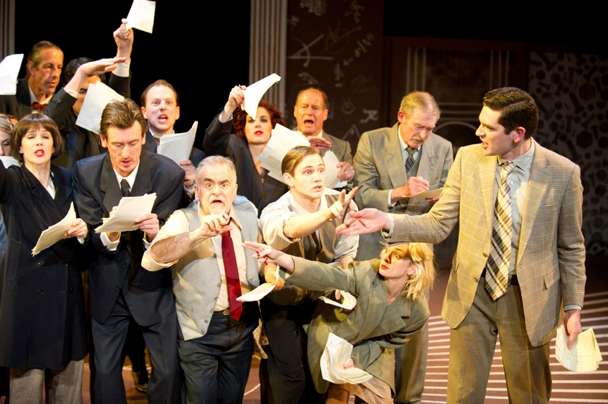The Farnsworth Invention
Aaron Sorkin writes about two men who fought for the right to say they invented the box.
Overview
The Farnsworth Invention tells the story of the fight for the patent for television. The battle plays out between two poor-boys-come-good, Philo T Farnsworth (Damian Sommerland) and David Sarnoff (Patrick Connolly). In the early 1920s, RCA manufactured radios, and made a radio network to go with them called NBC. As Television became a tantalising inevitability, Philo Farnsworth worked to bring this vision to life, while Sarnov competed, as the head of NBC, to beat him to it.
While Sommerland and Connolly's lead characters each draw you into the ins and outs of their competition, the best part of this production is the ensemble itself. Each player has few enough roles to play, but their strength lies in the way their presence crowds around the two leads. Most of the cast is on stage most of the time, tittering and gasping at the action, and leaving you with a sense of the fears and buzz that permeated that era's preoccupations, much as present-day media moguls and disasters occupy us today
Explaining complex systems is a specialty for writer Aaron Sorkin, best known as the author of the Social Network and the West Wing. Here, he takes what might have been a dry story, interesting only to technology wonks, and made it engaging. As his leads explain the inventions behind cathode-ray televisions, it's easy to understand the intricacies of a TV's phospherecent image. Throughout, the play uses science and music as metaphors for technology and its uses. Farnsworth is more interested in making a TV, but Sarnoff has a stronger vision for what to put on it, despite Farnsworth's own musical talent which straddle both fields. The Farnsworth Invention lets you join them there, in an evening where art explains, and argues about, science with you. And leaves you excited about it to boot.





